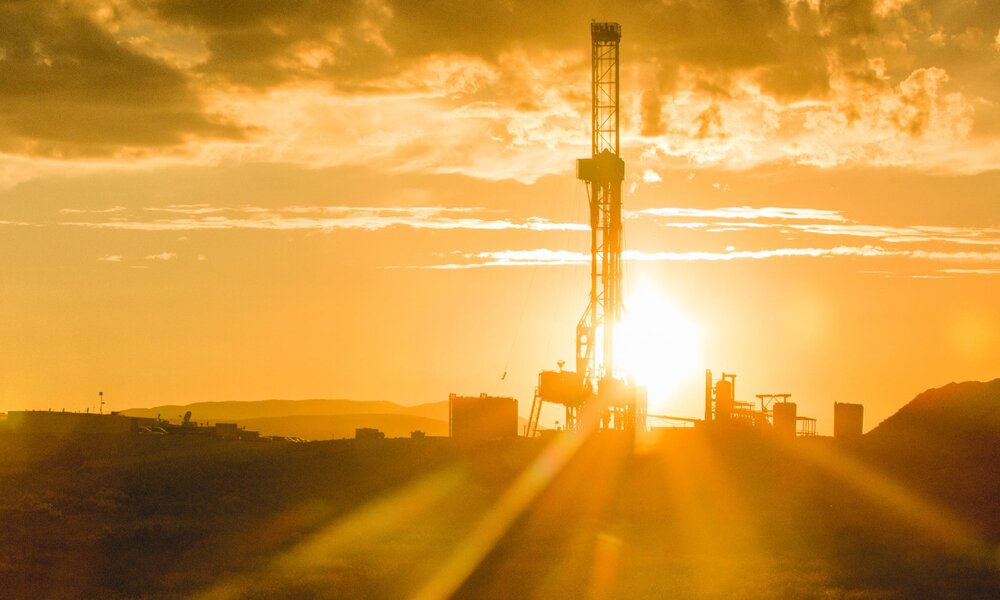Saudis join shale gas race
If you can’t beat them join them

Saudi Arabia fought a price war aimed at putting the U.S. shale industry out of business just six years ago and ultimately failed. Last week Aramco Chief Executive Officer Amin Nasser told Reuters that the company is launching the biggest shale gas development outside the U.S. to boost domestic gas supply to be used to replace oil to firepower generation plants.
The $110 billion Jafurah shale gas field project received the green light from Aramco on Saturday aimed at making Saudi Arabia world’s third-largest gas producer by 2030. Top two producers are U.S. and Russia.
The plan is to use the gas to replace 800,000 bpd crude used for power plants to generate electricity by 2030.
Fracking is a controversial way of extracting natural gas from beneath the earth’s surface which was previously too costly to tap. It has already proven to have triggered earthquake, and with a potential to cause numerous other forms of ecological damage, it has been banned by some countries.
Why is fracking so contentious? Environmentalists argue that long term effects of fracking on the environment is not studied and known.
The process requires pumping water, sand, and chemicals into the fields at high pressure on sandstones and shale under the earth that contain natural gas. The gas is accumulated through the decomposition of dead organisms in the rocks. Fracking extracts that gas by drilling into rocks by injecting pressurized water mixed with various chemicals to force it out, inevitably disturbing a terrestrial netherworld.
Fracking uses a substantial amount of water which is mixed with chemicals, including toxic liquids, acids, detergents and poisons, known as “fracking cocktail” that is thrust with high pressure on the shale, thereby cracking them and releasing the gas. In short extracting natural gas from rock.
The long-term impact of injecting the earth with such a lethal chemical cocktail has not been studied thoroughly.
What is known is that fracking causes earthquakes, rampant air and water pollution, and an ever-growing list of public health problems. And then there are risks to the climate. Once you properly account for emissions of carbon dioxide and methane (from natural gas), the supposed advantages of switching to gas-fired power plants from coal are far less impressive than advertised.
With the severe shortage of water in the region, Nasser said Aramco had developed fracking using seawater, which will remove the obstacle that a lack of water supply represents to fracking in the desert.
“A lot of people said it doesn’t work outside the U.S. because fracking uses a lot of water and we are not rich with water. But we are using seawater,” the Aramco executive said in the interview.
The Jufarah field is near the Persian Gulf coast, having relatively easy access to seawater, which will have to be lightly treated before using in fracking. Aramco has also identical local sand that can be used for fracking, insists Nasser.
Saudi Arabia is bordered by Jordan, Iraq, Kuwait, Qatar, Bahrain, the United Arab Emirates, Oman, and Yemen. There has been no comments from the neighbors about the ecological damage that such a project can bring with it.
Fracking and 2020 U.S. elections
A stand on fracking industry can be very tricky. On the one hand, it can be a question of the creation of jobs and a source of energy in the short term. However, the long-term implications of the environment is not known. For politicians, short-term gains count.
Gains to consumers far outweigh the costs associated with fracking. Eliminating fracking would inevitably lead to higher natural gas prices and higher electricity prices and increased unemployment as the U.S. would once again become a net importer of natural gas and oil.
Making 2020 elections a climate emergency story?
“On my first day as president, I will sign an executive order that puts a total moratorium on all new fossil fuel leases for drilling offshore and on public lands. And I will ban fracking — everywhere,” Democratic presidential hopeful Elizabeth Warren tweeted.
The rest of the Democratic hopefuls will follow suit, with a possible exception of Joe Biden and Ohio Rep. Tim Ryan, analysts predict.
Of course, oil industry is a mega-industry with big backing behind it. On Thursday a U.S. oil lobby group said banning hydraulic fracturing and halting new drilling on federal land would cost the U.S. economy $7 trillion in the next decade and kill millions of jobs. No need to talk about Trump’s stand on the issue.
In conclusion, I want to ask why should we abandon and sanction Iran’s easily accessible, environmentally friendly to extract fossil fuel deposits and instead venture into the North Pole, as Russians, Canadians and Americans are doing presently or dig miles under the ground inside rocks in search of natural gas?

Leave a Comment